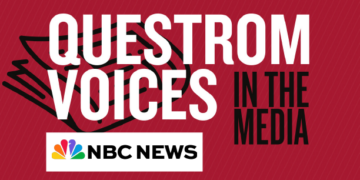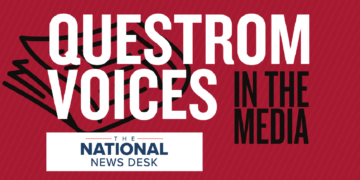As the U.S. holiday travel season picks up, many people are noticing that their frequent flyer benefits aren’t going as far as they used to.
In September 2023, Delta Air Lines revamped its frequent flyer program to make it tougher to earn status — a tiered system offering travel privileges based on the reward points earned — only to partially reverse course a month later and make it easier. American Airlines also made big changes to its loyalty scheme in 2022 and minor changes in spring 2023. And British Airways recently announced that it is adjusting the way it awards points for travel.
We are business school professors who study rewards programs. Many people think flying is a miserable experience, and having status sometimes makes flights better. So it’s only fair that frequent flyers are asking why it’s seemingly harder to obtain such status.
Why miles are a multibillion-dollar business
One big idea to understand is that airlines don’t earn very much money, if any at all, from ticket sales. This is mainly due to the highly competitive and capital-intensive structure of the airline industry, which often leads to reduced profit margins. Instead, they make their profits from bag fees, ticket change fees and — importantly — frequent flyer programs.
On many airlines, there are two ways to earn status. One is to fly a lot. But that means spending time in crowded airports. The other way is to spend a lot of money using a rewards credit card.
Frequent flyer programs, coupled with rewards credit cards, are very profitable for airlines. For example, Delta’s latest annual report shows last year that the company earned US$5.7 billion from selling credit card miles. Given Delta only made $3.6 billion in profits, this frequent flyer program clearly boosts the bottom line.
Designing the optimal rewards program
Many types of businesses, not just airlines, offer rewards programs. From a company’s perspective, a well-designed loyalty program should cost little or nothing, give customers great value and prevent them from using a competitor.
Frequent flyer programs fit this bill: Giving some passengers the ability to board early or access to a lounge costs airlines almost nothing, but many customers desire it. Plus, the chase for status or free flights locks people into using only one airline.
Much of the appeal of status programs comes from their exclusivity. This leaves airlines with a problem: where to set the bar. A low bar means nearly everyone gains status. But customers get no value being allowed to board first if almost everyone on the plane can also do it, and airport lounges aren’t a haven when travelers can’t find empty seats. At the same time, setting the bar too high results in empty lounges and unhappy customers.
Striking the right balance is tough, since the number of flyers is constantly changing due to economic conditions. When the economy is doing well, people want to travel. This gives airlines an incentive to tighten frequent flyer rules. When the economy is doing poorly, people stay home and airlines relax their rules.
For example, at the height of the COVID-19 pandemic, few people flew, so airlines made it easy to earn or keep status. Today, with the economy doing better and flying back to pre-pandemic levels, airlines are making it much tougher.
Many airlines are switching from a frequent flyer status model based on miles traveled to one based on dollars spent. This move aligns with the main design principle of these programs: The benefits a company gives to customers must mirror the value it gets from them.
Who pays for all those rewards, anyway?
Rewards programs are very profitable for airlines and their credit card partners. But for cardholders, the value proposition is less clear. These cards promise “free” rewards, but don’t actually deliver anything for free.
First, rewards cards often come with an annual fee. Fees typically range from around $100 per year for a simple airlines reward card to $600 for a card that gives lounge access. Second, since many people don’t pay off their credit card balance each month, these card companies make billions of dollars charging people interest.
Credit card companies also charge merchants roughly 2.5% every time a customer swipes a reward card — what’s known as the interchange fee. The more generous the card, the higher the fee merchants have to pay. In general, when sellers encounter many consumers using reward cards, they raise prices to offset the additional cost.
What do all these fees mean for the typical flyer? People who pay off their reward card balances in full every month get roughly back the extra amount they pay in fees and charges. People who don’t pay off their balances, or who use debit cards or cash, pay more so that reward card holders get “free” travel. The result is that poorer and less financially savvy people end up subsidizing the flights of richer people.
A boom time for airlines, less so for passengers
Since the deregulation of air travel in the 1970s, airlines have gone through boom and bust cycles. Right now, it’s a boom for airlines and a bust for people looking for frequent flyer status. There’s no reason for airlines to be as rewarding today as they were in the past. Planes are full of people willing to pay with money. Sometime in the future, however, it will reverse, and it will be a boom time for flyers looking for status when planes begin having empty capacity.
In the meantime, what should you do? Our general advice is that if you are going to use a reward card, choose a card that gives cash back, not one that gives airplane miles. Good old cash is far more useful than miles. Miles can be devalued by an airline at any moment. Plus, even the most elite status doesn’t help much when your plane is delayed — and that’s happening more and more these days.
This article is republished from The Conversation under a Creative Commons license. Read the original article.


























